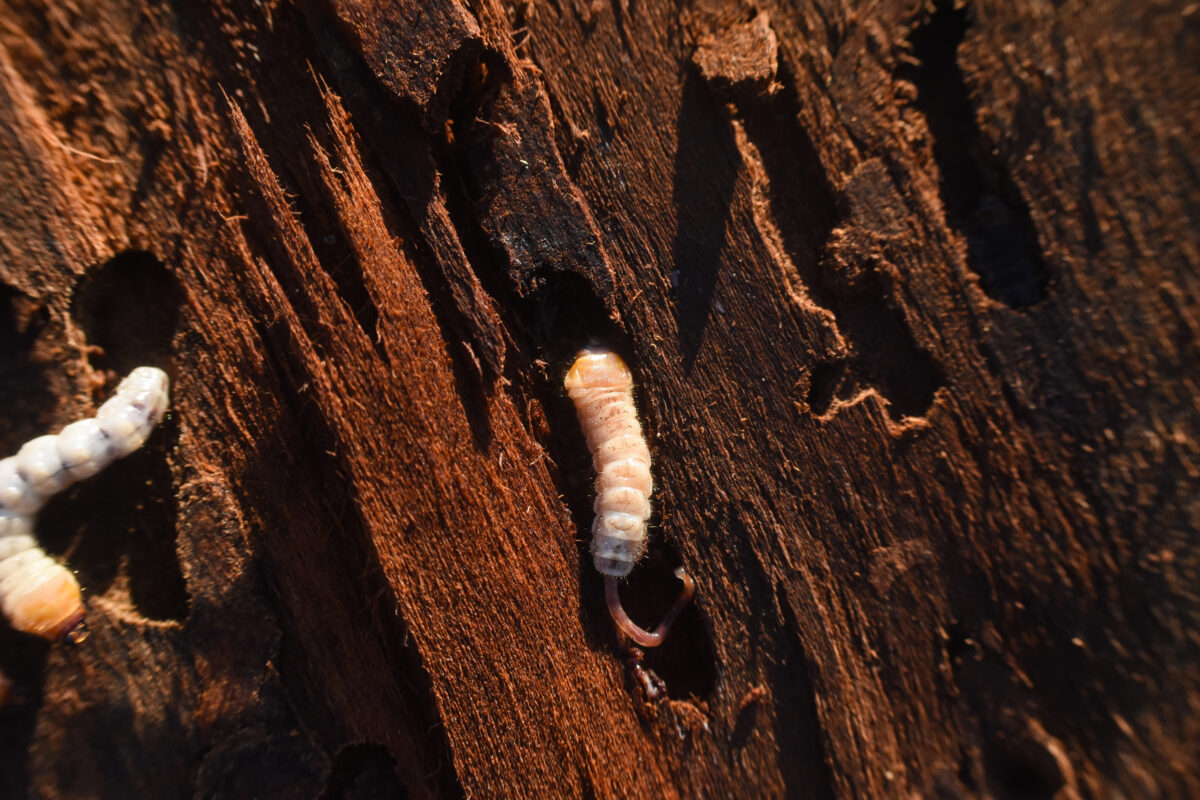Blog, Disease & Pest Prevention
Bore Me No More! Recognizing & Managing Damage From Boring Insects
Did you know that there are over 600 species of boring insects in the United States? With so many species, both native and invasive, it’s important to keep your trees healthy to prevent them from doing irreversible damage. Common wood-boring beetles in Missouri include:
- Long-horned beetle
- Bark beetle
- Emerald ash borer
 Emerald ash borer is particularly destructive as it attacks and kills all ash trees whether the trees have been weakened and predisposed or not. Healthy ash trees are just as vulnerable. If you have ash trees on your property, contact an ISA Certified Arborist immediately to treat and help prevent its spread. Ash trees in our region are heavily infested with EAB, and this pest moves quickly from tree to tree.
Emerald ash borer is particularly destructive as it attacks and kills all ash trees whether the trees have been weakened and predisposed or not. Healthy ash trees are just as vulnerable. If you have ash trees on your property, contact an ISA Certified Arborist immediately to treat and help prevent its spread. Ash trees in our region are heavily infested with EAB, and this pest moves quickly from tree to tree.
EAB and other types of borer infestations can often go unnoticed, especially in the early stages of infestation. That’s why as a homeowner, you should keep an eye on your trees for signs of boring insects.
Signs Of A Borer Infestation In Your Trees
Symptoms of borer insects can vary from species to species, but the general signs to look out for include:
- White or reddish-brown pitch tubes on the outside of the bark.
- Borer holes in the tree when the bark is peeled away
- Flaking or holes in the bark from woodpecker foraging
- Frass (a sawdust-like substance) around the tree and in tree crevices, an indication of burrowing
- Browning leaves or needles
- Epicormic shoots
So if you’re inspecting your trees and noticing a lot of pock marks and other symptoms, call your trusted tree care company for an inspection.
Managing And Preventing Boring Insects In Your Trees
Management of boring insects includes a lot of prevention. Any tree that you want to protect should be treated prior to any visible symptoms. These treatments include sprays, injections, and routine maintenance performed by an ISA Certified Arborist.
To help prevent your trees from being infested, schedule tree care consultations. The attending Certified Arborist will be able to identify trees that pose an unacceptable risk to your property and diagnose any problems.
